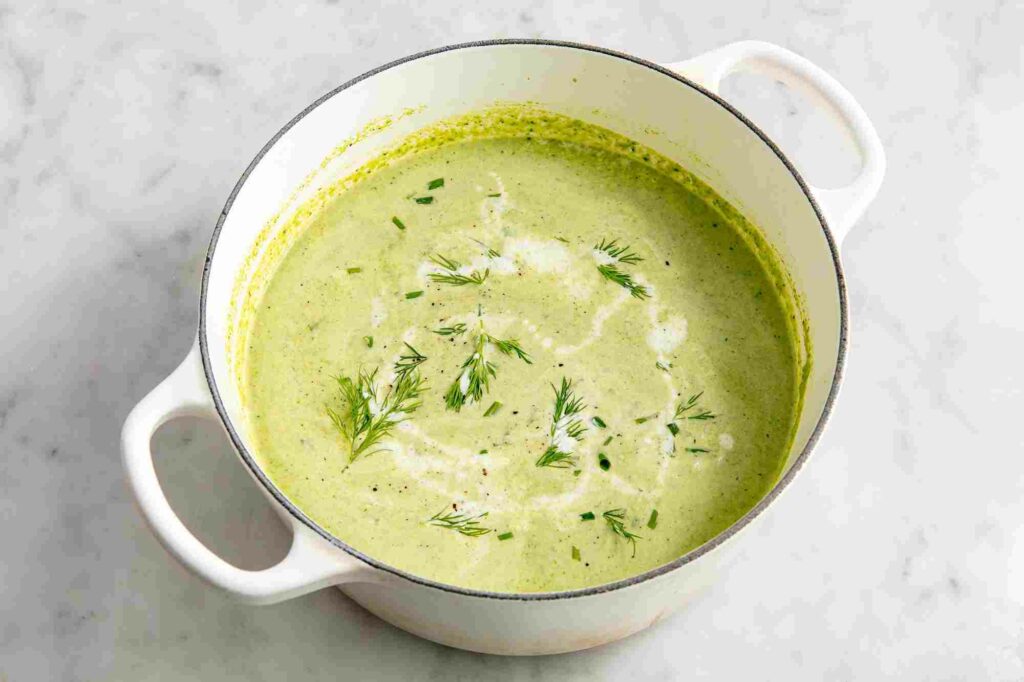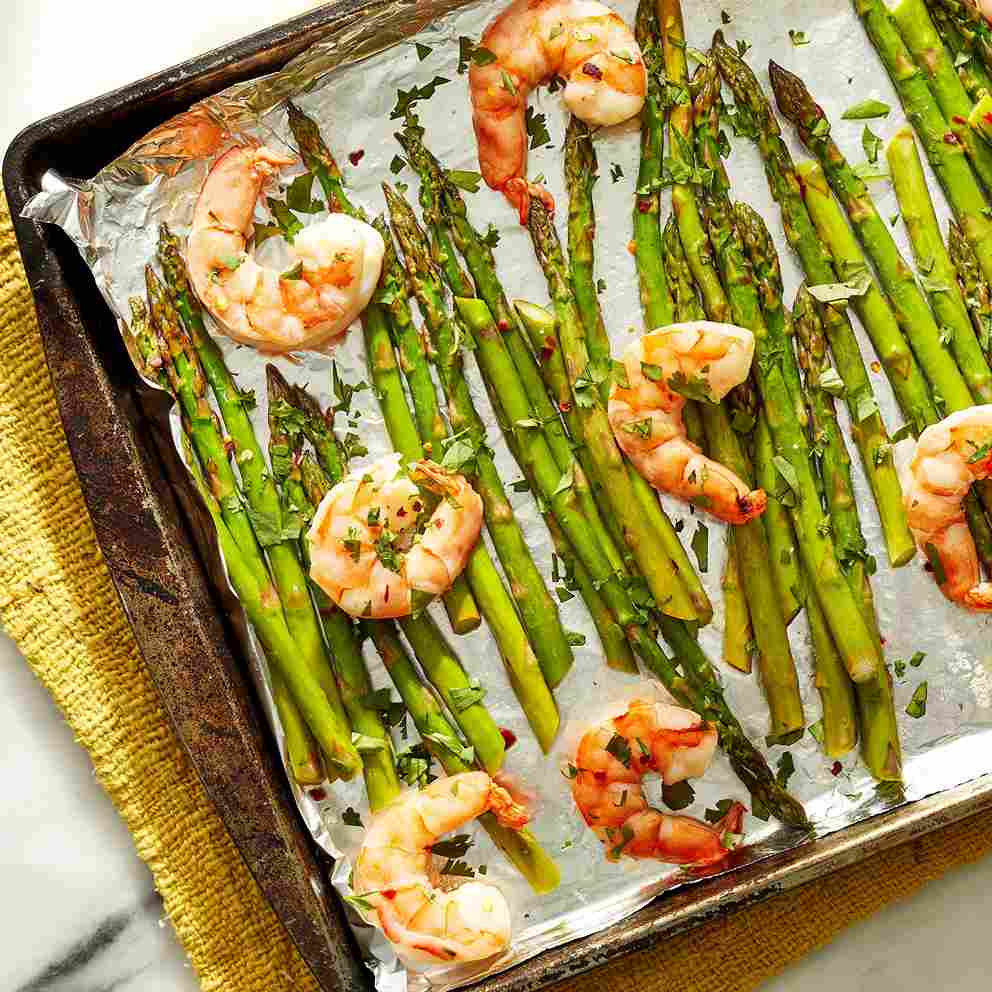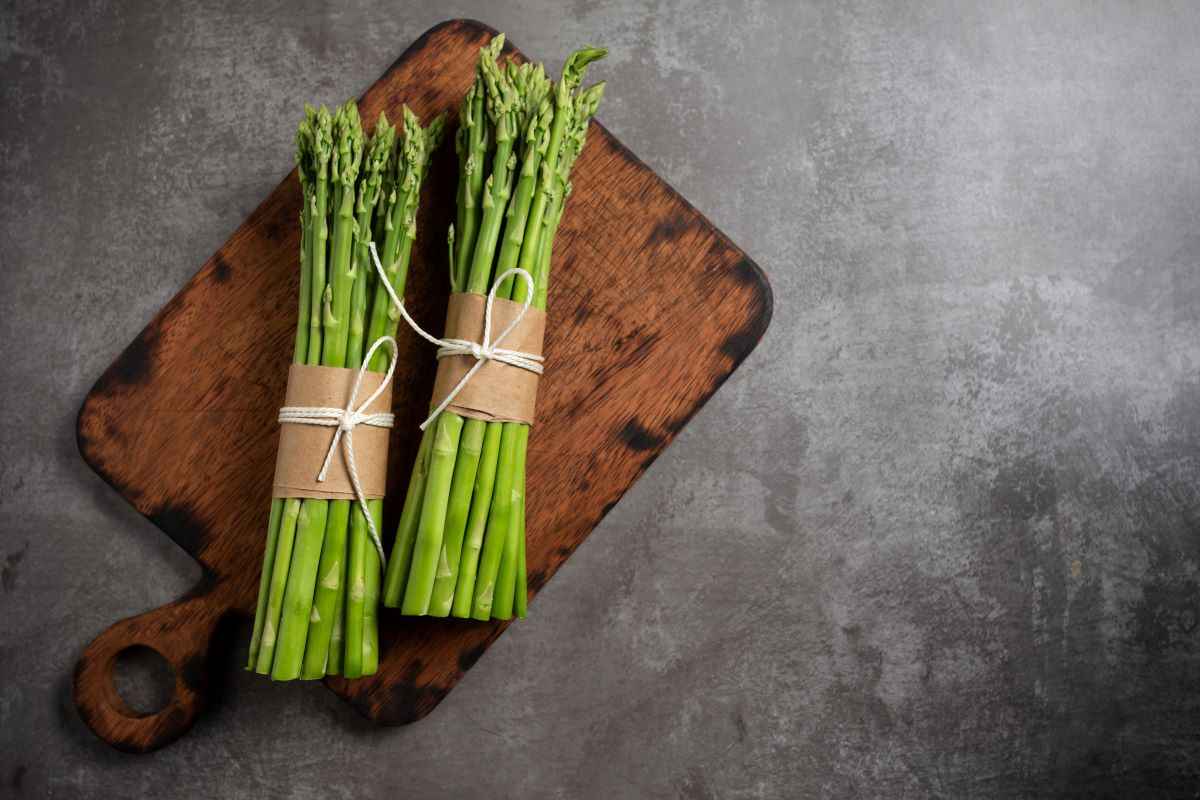Learn the method of how to cook Asparagus in various mouthwatering recipes. This seasonal vegetable’s delicate spears may be cooked in various ways, including blanching, griddling, roasting, or even eating raw.
The term “sprue” refers to the very first shoots to emerge. They are often delicate all the way through and have a thinner consistency. Trimming off the extremely woody tips of the later, thicker branches may be necessary.
Bend each stalk with both hands until it breaks; the break will occur where the woody section meets the fragile part of the stalk. The remnants that need to be thrown out may be large, but you can use these scraps to produce a stock that can be used in stews and soups.
If you want to get the most out of your Asparagus, prepare it as soon as possible after it has been gathered. There are various ways for cooking Asparagus, such as by roasting it and adding it to a salad or griddling it and serving it as a side dish with a roasted chicken entrée.
Quick Access
Different Ways To Cook Asparagus
Use this helpful instruction for the three best methods of preparing asparagus if you are unsure how to cook Asparagus.
#1. Asparagus Recipe By Roasting
Asparagus will take on a golden color when roasted and make a little crunch in some spots. Let’s learn how to prepare Asparagus by roasting.
- Turn your oven’s temperature up to 200 degrees. The Asparagus should be dried.
- Place the spears of Asparagus in a big bowl, then sprinkle them with olive oil and salt. Gently toss the Asparagus until it is completely covered in the coating.
- Arrange the Asparagus in a big roasting pan with a rim, careful not to crowd the pan.
- Cook the Asparagus in the oven for around fifteen to twenty minutes, turning it once or twice to ensure that it is cooked evenly.
- Salt may be added to the taste as a finishing touch.
#2. Asparagus Recipe By Blanching/Boiling
Asparagus that has been boiled will retain some of its crispiness even after cooking. Let’s learn how to cook Asparagus by blanching or boiling it.
- Prepare a boil in a big pot of water by filling it with the liquid. In addition to that, fill a large dish with ice water and set it aside.
- After adding the Asparagus to the water that is already boiling, continue to simmer for another two to three minutes until the Asparagus is tender but not mushy.
- Using the tongs, put the Asparagus in the ice water as rapidly as possible.
- The ice water will assist in preventing the Asparagus from being overcooked.
- Take the object out of the water, and drain it. The cooked Asparagus may be served in a variety of different ways.
#3. Asparagus Recipe By Grilling / BBQ’ing
Cooking Asparagus on a grill will be tender and have a mild charred flavor. Let’s know the best way to cook Asparagus by grilling.
- Turn on the grill (medium-high). The Asparagus should be dried.
- Place the spears of Asparagus in a big bowl, then sprinkle them with olive oil and salt. Gently toss the Asparagus until it is completely covered in the coating.
- Put the spears, which have been greased, on a grill for around two to three minutes. Toss the Asparagus with the tongs and cook it for another two to three minutes. Repeat turning the Asparagus until it is cooked through and has a charred appearance.
- When you are ready to serve it, give it one more shake of salt and, if you want, a few drops of olive oil.
In Which Dishes To Add Asparagus?
When you add the bright taste of lemon and Parmesan cheese to it, you get a dish that is just delicious. It is high in fiber and the vitamins C, A, and K and is considered one of the healthiest vegetables you can consume. Although it is most often consumed in the spring because of its seasonality, it can be found and purchased at almost any time of the year.
It’s a common misconception that Asparagus is reserved just for the supplementary fare; in fact, it shines brightest when featured as the primary attraction of a meal. You can make a delicious meal by combining it with spaghetti, lemon, and Parmesan cheese.
You may include it in a quiche or a frittata or serve it for breakfast with scrambled eggs and goat cheese. It tastes great even when it’s raw and shaved into ribbons. Let’s go right into the dishes with Asparagus recipe!
#1. Creamy Asparagus Soup

Utilize it in this manner if you have any asparagus that is getting on in years; it will still taste great! Since everything is pureed, there shouldn’t be any issues with the shrivelled spears.
#2. Creamy Chicken and Asparagus Pasta

A nice midweek supper. To simplify the preparation process, cook the Asparagus straight in the water used to cook the pasta. You can recreate the segmented appearance of the Asparagus using penne.
#3. Ham and Asparagus Strata

This substantial dish may be eaten for breakfast, lunch, or supper, depending on your preferences. Imagine a savory bread pudding when you think of it. And you may put everything together as much as a day in advance!
#4. Sheet Pan Shrimp and Asparagus

This is the simplest supper that can be made on a sheet pan. Serve with quick couscous for the least stressful dinner during the week you’ve ever had.
#5. Asparagus Frittata

Eggs and Asparagus were practically meant to be together. And don’t limit yourself to just brunch. We guarantee that you will become a frittata devotee if you use leftover frittata as a sandwich filler.
What Are The Benefits Of Having Asparagus?
These vegetable spears are an excellent choice for anybody looking to increase their fiber, vitamin C, and folate intake in their diet. Additionally, it is a wonderful source of vitamin K, a necessary component for maintaining strong bones and blood coagulation.
It is important to note that Asparagus also includes chromium, a trace mineral that may boost the capacity of insulin to transfer glucose from the circulation into cells. This is excellent news for those concerned about maintaining healthy blood sugar levels. In addition, Asparagus may provide other benefits, such as the following:
#1. Reduces blood pressure
Potassium is a vital vitamin for maintaining the health and function of your heart, bones, kidneys, and nerves. Asparagus is a good source of potassium. You may be shocked to discover that this stalky vegetable also contains a substance known as asparagine. This ingredient has been shown to assist increase blood flow, which can reduce blood pressure.
#2. Cancer prevention
This herbaceous plant, along with avocado, kale, and Brussels sprouts, is an especially rich source of glutathione, a detoxifying compound that helps break down carcinogens and other harmful compounds like free radicals.
Other foods rich in glutathione include brussels sprouts, kale, and this herbaceous plant. Consuming Asparagus may thus assist in preventing and treating some types of cancer, including those of the bone, breast, colon, larynx, and lung.
#3. Antioxidant-packed
Asparagus is among the vegetables that rank highest in its capacity to prevent the damage that free radicals do to cells. Asparagus may help slow down the aging process and decrease inflammation, much like other foods that have the potential to act as anti-aging foods.
#4. May enhance brainpower
This delightful spring vegetable may also assist our brains in warding off cognitive loss, which is just another one of its anti-aging benefits. Asparagus, much like leafy greens, is a good source of folate, which, when combined with vitamin B12 (which may be found in fish, chicken, meat, and dairy products), can lower the risk of cognitive decline.
If you are over 50, it is especially important to ensure you are receiving enough vitamin B12 since your body’s capacity to absorb it declines with age. Please find out about anti-aging foods with our list of the finest meals to help keep your brain youthful and healthy.
#5. A pure diuretic
Asparagus has a high concentration of the amino acid asparagine, which acts as a natural diuretic by encouraging the production of more urine and assisting the body in getting rid of excess salts. This is particularly helpful for those afflicted with edema, defined as an accumulation of fluids in the body’s tissues, and those with high blood pressure or other conditions connected to the heart.
Final Words!
Asparagus has the potential to be a healthy food option that is both delicious and simple to cook. The benefits of eating this vegetable are endless. Know that a wealth of handy and gratifying alternatives is available when choosing how to cook Asparagus before making your decision. However, if you have a technique you like or favor, please share your opinions in the comments section below!

